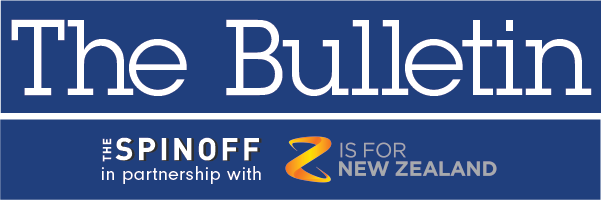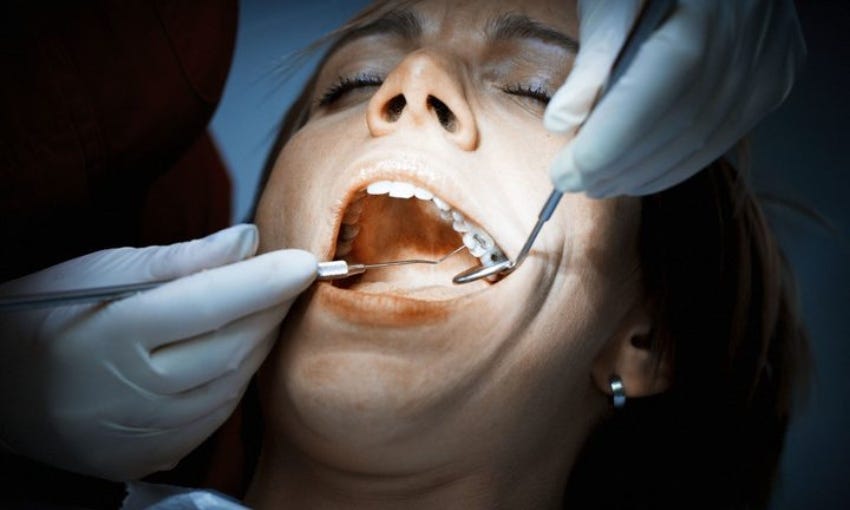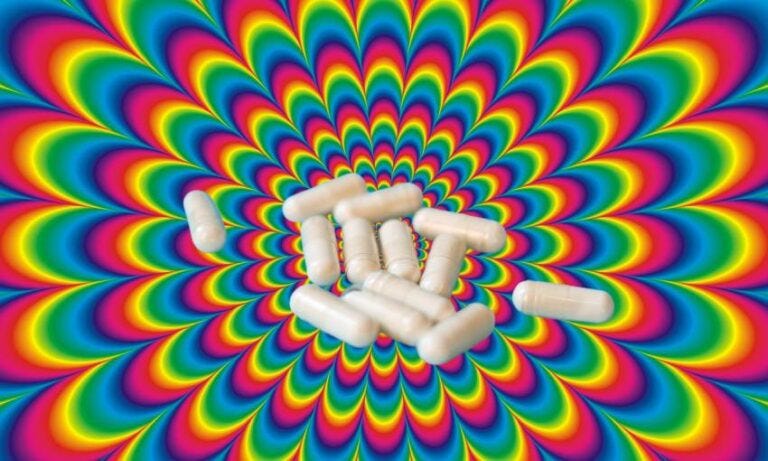Unaffordable dental care in the spotlight
For many adults, their only choice is to live in chronic pain, or take more drastic and dangerous measures

Good morning and welcome to The Bulletin for Tuesday 27 October, by Alex Braae for The Spinoff. Presented in partnership with Z Energy. My thanks as well to Alice Neville for stepping in last Friday, and hopefully you all had a good long weekend.
In today’s edition: Unaffordable dental care in the spotlight, update on the two crops of Covid cases, and Billy TK quits Advance NZ alliance.

(File photo, Radio NZ)
One of the weeping sores of the health system is the high cost of dental care, and the health effects that flow from that. It's not free like other healthcare is, and as a result many people cannot choose to get dental treatment. For an explanation of the funding system, and an explanation of the effects of that on poorer communities, it's worth going back to this edition of The Side Eye from March.
Over the weekend, the issue was thrown into stark relief by an exploration of how the cost of dentistry affects Northland, by The Hui. Even those who are working full time in Kaikohe can't necessarily afford to get dental care, and existing services are stretched to their limits. It leaves people resorting to drastic and dangerous measures, like attempting to pull their own teeth out with pliers. Others simply live in constant, chronic pain. The problems are well known – as Newshub reported months ago, the government received a report in 2018 on how to improve access to adult dental care, and simply sat on it for well over a year.
It briefly looked like the issue might become part of the election campaign, but then both major parties chose not to offer anything major. National's package involved $30 million for dental education, including a free toothbrush. Labour promised to triple the emergency grant available to low income people, but stopped well short of bringing dental care into the wider free health system. Not doing so may well be a short-sighted decision – as journalist and lawyer Cat MacLennan wrote on Newsroom at the start of the year, "our refusal to provide free dental care to adults carries with it costs for the entire country."
An update on Covid-19 from over the weekend: We had a live updates page running from Saturday through to Monday, with the number of active cases rising to 74 over the whole country. In total, 32 mariners in the hotel in Christchurch have now tested positive. Genome sequencing has also revealed that all three cases connected to the Sofrana Surville ship in Auckland are identical, suggesting they came from a common source.
Billy Te Kahika has withdrawn from the alliance with Advance NZ, following a poor showing in the election, reports the NZ Herald. He'll be taking the NZ Public Party component of it with him, and presumably a huge chunk of the membership as well, given they provided the serious numbers for the alliance. It leaves Advance leader Jami-Lee Ross somewhat adrift, and as text messages released to Stuff show, he seems to have been aware throughout the campaign that NZPP momentum was his only possible path back to parliament, and was willing to overlook financial issues around the component party to get there.
We've had a big weekend of election analysis on The Spinoff, so I'll share it all up top here. Jihee Junn reports on the digital spend of parties and candidates over the campaign, particularly on Facebook. Joe Nunweek writes about the swing to Labour, and how it could signal a widespread shift in what the electorate wants to see from politicians. Ben Thomas reviews the post-election wreckage for the National party, and where they have to go from here. Liam Hehir argues that National's self-reflection should involve a reexamination of their policies around social welfare. And on the coming decisions for the Greens, we've got former MP Kevin Hague urging them to throw themselves into cooperation with Labour, while member and activist Justine Sachs argues that a seat at the table isn’t worth selling out the party’s soul.
We'll get a full range of ministerial announcements in a few weeks, when the shape of parliament is finalised. But in the meantime, there's a lot of speculation about who will be the next foreign minister, now that Winston Peters is out of parliament. Politik this morning reports that it's likely to come down to Andrew Little or David Parker – but at the same time, both have significant long-term domestic responsibilities in Treaty negotiations and the environment respectively, which they may not be willing to give up.
Staying in foreign policy, there'll be an upcoming headache for the government over whether to back Chris Liddell's candidacy for the top job at the OECD. Liddell is a New Zealander who is currently working at the heart of the Trump White House, having been there for pretty much the entire term. Newsroom's Sam Sachdeva has analysed whether it is in the NZ government's interests to support him, not least because the Trump administration has spent four years gleefully trampling all over international agreements and institutions.
In otherworldly news, a form of water has been discovered on the moon. Radio NZ reports the NASA announcement has raised hopes of being able to sustain a lunar base in the coming years, as the frozen water would potentially also provide people with oxygen to breath and hydrogen for fuel. It doesn't necessarily indicate anything about life on the moon, which also has no atmosphere to hold water together in liquid form.
Got some feedback about The Bulletin, or anything in the news?
Drop us a line at thebulletin@thespinoff.co.nz

Right now on The Spinoff – a whole long weekend of great reads to catch up on. We'll start with stuff in a vaguely medical vein: Alex Kazemi writes about the history of plagues, and the challenges for systems to overcome short-term thinking. Nick Eichler and Siddhartha Mehta write about how Covid has exposed health iniquities, and what to do about that. Helen Glenny writes about the resurgence of study into the medical uses of psychedelic drugs like LSD. James Dann explores how the Covid lockdown helped clear the air and potentially eased water pollution, and follows that up with a piece about the wider societal and health effects. Hassan Vally of La Trobe University writes about Melbourne's long lockdown, and how the city is finally ready to start opening up again. Simon Day writes about his experience of postnatal anxiety, and how increasing awareness is needed of mental health issues for new fathers.
And in a whole bunch of other stuff: Tara Ward looks back at one of the great unifying moments in New Zealand's history – the televised grand final of Top Town. Michelle Langstone speaks to Claire Mabey, who as a festival director has come through an absolute horror year. David Hill reflects on the life and death of the real boy who inspired his heartbreaking novel See Ya, Simon. Christopher Smol writes about Letterboxd, a New Zealand website changing the way the world talks about movies. Michael Andrew meets Ian Swney, the unlikely vandal who spray-painted wage subsidy messages all over a Briscoes, and asks what he's planning next. Emily Writes marks the brief life of streaming site Quibi, which is now gone after launching to great fanfare only months ago. Duncan Greive reviews his underwear. And Sam Brooks speaks to Sophie Henderson, who brought her own experiences of pregnancy to bear in writing the newly released film Baby Done.
For a feature today, an unusually told story of an unusual haven for activists and artists in Wellington. Writing on the Pantograph Punch, Airini Beautrais has looked back on 128 Abel Smith, the old house in the middle of the city that recently burned to the ground. It blends personal experience with what was happening in the wider scene at the time, in a way that helps get a sense of the place across. Here's an excerpt:
When 128 burned down it brought up a lot of memories for a lot of people. Some of these were good; some were less good. There were photos of the TACO street party shared on social media. We made connections: who we know now, who we crossed paths with then. For others, the rose-tinted nostalgia was less appealing.
There were fights at 128. There were meetings that devolved into screaming matches. There were men who abused women. There were creeps. There were cliques and campaigns against particular people; there were friendships that fell apart. There was an element of holier-than-thou – the newcomer with new leather shoes might not be welcomed as warmly as the one with safety-pinned clothing. None of this was good; none of it was particularly surprising to me. I had grown up in a religious community with core values of peace and love, and I had seen all of this happen before. It continues to happen wherever people live and work together.
In sport today, a fascinating story of a young athlete who is stepping up where politicians are failing. Writing on Sportsfreak, Aiden McLaughlin has discussed the state of school lunches in the United Kingdom, and how footballer Marcus Rashford has been leading the charge to ensure that kids in poverty would still be able to access food over the summer holidays. He's 22 and famous for kicking a ball around, and yet Rashford clearly has a stronger moral compass than many of those elected to run the country.




